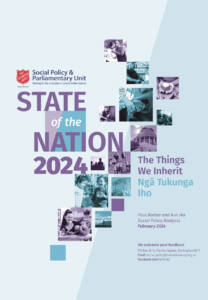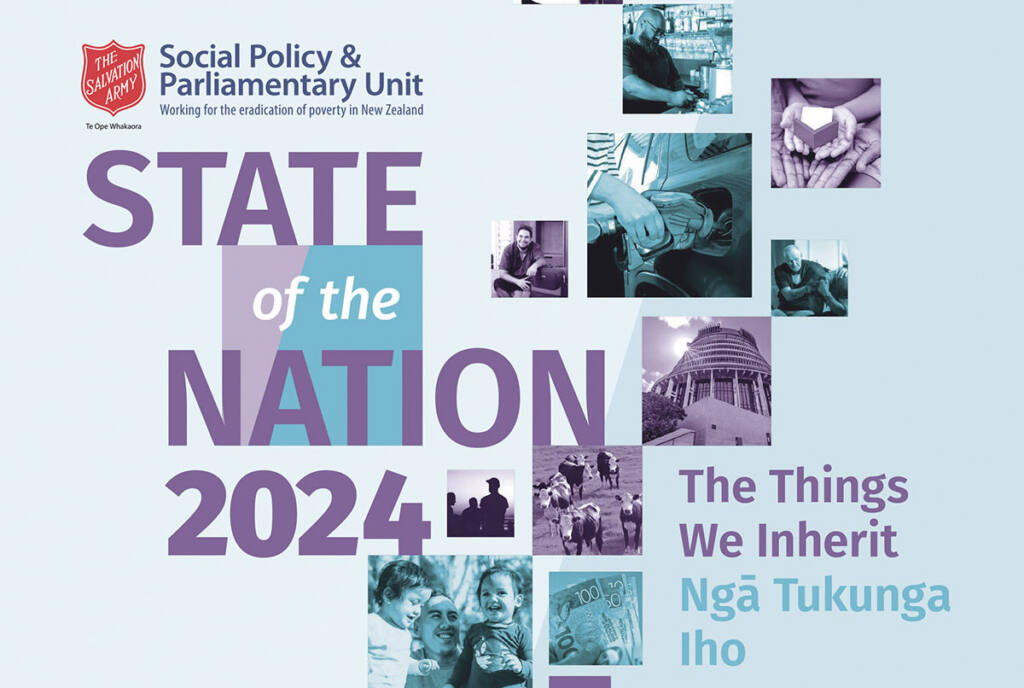
WelCom March 2024
Amidst the country’s deepening cost-of-living crisis, the Salvation Army’s State of the Nation 2024 report pinpoints the growing socio-economic challenges facing New Zealanders.
The report, titled Ngā Tukunga Iho – The Things We Inherit, provides an annual snapshot of the country’s social progress as a nation.
Now marking its 17th year, the report – released 15 February – looks at five specific areas: Children and Youth, Work and Incomes, Housing, Crime and Punishment, and Social Hazards. A section called Māori Wellbeing uses He Ara Waiora wellbeing framework to look at those five areas specifically for Māori.
‘The theme of the 2024 report reflects the fact the new government inherits both the achievements and the challenges from the previous government,’ says Lt-Colonel Ian Hutson, director of the Social Policy and Parliamentary Unit at The Salvation Army.
‘It also reminds us the actions taken today will affect future generations and how they will live.’
While the report acknowledges significant progress has been made in recent years – reductions in child poverty, an increase in social housing units, sustained low unemployment – it also points to concerning trends.
These include the deepening cost-of-living crisis hitting lower-income households hardest, rising rental costs outpacing inflation, overall increases in food insecurity and financial hardship.
Hutson says of the report: ‘The new government needs to build on the progress made…and learn from what works.’
Key findings in the report include concern for Māori wellbeing, with ongoing inequities affecting Māori education, housing, employment, imprisonment and harm from alcohol and other drugs.
The Children and Youth section says child poverty reduction is a key achievement of the past five years. But large, unequal impacts of poverty on Pasifika, Māori and children living with disabilities means there’s much work to do to in the coming years to achieve government targets for poverty reduction.
The Housing section indicates unaffordable housing and homelessness continue to haunt people on low incomes; exacerbated by a decline in new housing consents and a record high inward migration. The report calls for an urgent increase in public housing supply.
On Crime and Punishment the report indicates an overall increase in reported and unreported crime and notes violent offences are increasing.
The Social Hazards section notes a positive decline in alcohol and drug consumption. But it points to rising gambling losses and signs of increased financial hardship.
Under the heading Work and Incomes, the report highlights the continued high levels of employment but raises concerns about rising unemployment and persistent wage inequality affecting women and ethnic minorities. It says inflation is putting pressure particularly on low-income households. Food insecurity for households with children has increased.
Source: The Salvation Army Report: salvationarmy.org.nz/sotn2024
